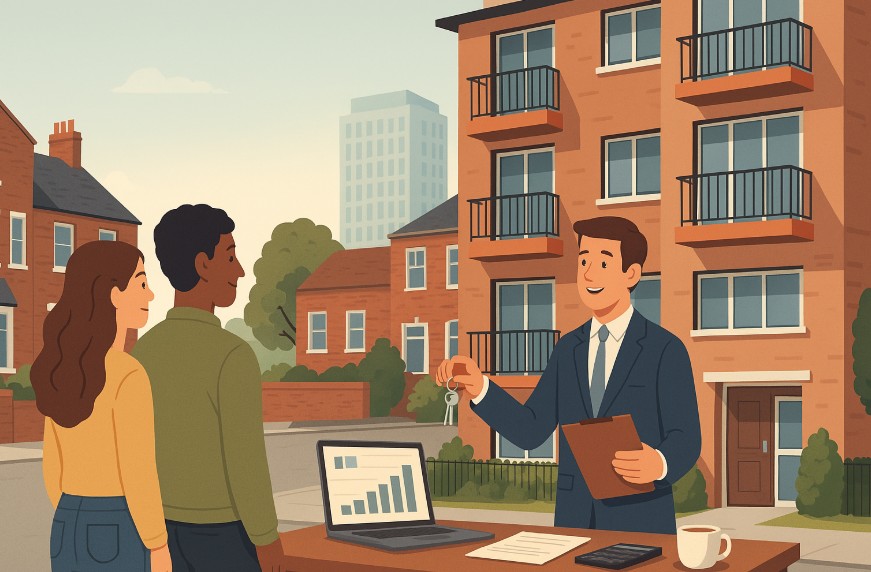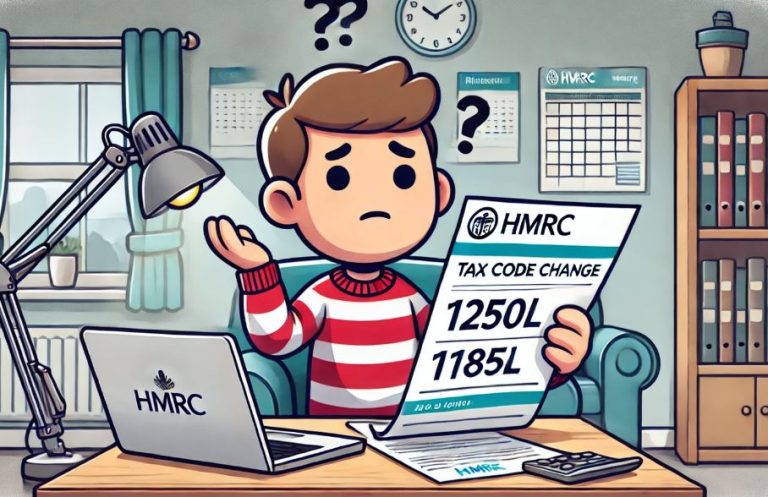Why Would Anyone Buy a Leasehold Property?
In recent years, leasehold property ownership has been the subject of much scrutiny, debate and even government reform. Yet, despite its challenges, leasehold continues to be a popular option across the UK property market.
In fact, according to data from the Department for Levelling Up, Housing and Communities, there are now over 4.9 million leasehold homes in England, and although recent years have seen a decline in new leasehold house sales, leasehold flats remain commonplace in towns and cities across the country.
For many buyers, particularly those entering the housing market for the first time, leasehold remains not only a realistic option but often the only viable path to homeownership.
This blog explores what leasehold really means in 2025, why people still buy leasehold properties, the risks involved, and how to approach such purchases wisely.
What Is Leasehold Property Ownership in 2025?

In basic terms, a leasehold property is one where you own the property itself but not the land it stands on. Instead, the land remains under the ownership of a separate individual or company the freeholder.
Your right to occupy the property is governed by a lease, which grants you ownership of the home for a fixed period typically 99, 125, or even 999 years.
When the lease runs out, ownership of the property reverts to the freeholder unless an extension is agreed upon.
Leasehold is the default tenure for most flats and apartments in England and Wales. It’s less common for houses today, especially since legislative efforts in the last few years have cracked down on unnecessary leasehold arrangements for newly built houses.
Why Do People Choose to Buy Leasehold Properties?
Despite the often negative publicity around leasehold, many individuals and families choose to buy leasehold homes every year. The reasons vary widely and often come down to practicality, location, affordability, and lifestyle preferences.
Entry-Level Affordability

Leasehold properties, particularly flats and maisonettes, tend to be less expensive than comparable freehold homes. This makes them attractive to first-time buyers who might struggle to afford a house. In many cases, these homes also come with lower deposit requirements, reduced Stamp Duty Land Tax (SDLT), and cheaper legal fees.

Some leasehold arrangements allow buyers to enter through shared ownership, where they purchase a portion of the property and rent the rest. This hybrid model enables people with modest incomes to step onto the property ladder and gradually increase their share of ownership over time.
Urban Convenience and Location
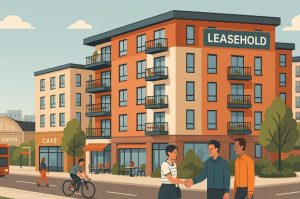
Many leasehold properties are located in prime city locations, near public transport, employment hubs, universities, and retail centres. For buyers who prioritise location over land ownership, leasehold offers the opportunity to live in vibrant, high-demand areas where freehold options are rare or prohibitively expensive.
Reduced Maintenance Responsibility

One major appeal of leasehold living is that the freeholder or managing agent typically takes care of external building maintenance and communal areas.
This can include landscaping, roof repairs, hallway cleaning, and utility infrastructure management. Buyers who prefer a more “hands-off” approach to property upkeep often view this as a positive.
Access to Amenities

Modern leasehold developments often include on-site facilities such as gyms, co-working spaces, gardens, and secure car parks. These features add value and appeal, especially to young professionals and downsizers seeking a community-focused living environment.
Attractive for Investors
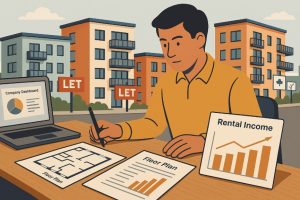
Leasehold flats in well-connected areas continue to be popular with property investors in 2025. These homes typically attract good rental demand, and the lower purchase price can deliver stronger rental yields than more expensive freehold properties.
What Are the Pros and Cons of Leasehold Property?
Like any form of property tenure, leasehold comes with benefits and limitations. Understanding both is crucial for making an informed purchase.
Advantages
Leasehold properties remain one of the most affordable routes into homeownership in the UK. They are typically lower in price and involve reduced upfront costs such as SDLT and deposits. Leaseholders also benefit from managed communal areas and facilities, as well as potential access to shared ownership schemes.
For those seeking to live in high-demand urban locations or near key transport infrastructure, leasehold offers access to housing stock that freehold simply cannot match in availability or price.
Disadvantages
The main criticism of leasehold revolves around lack of control and long-term ownership limitations. Leaseholders may need to:
- Pay service charges and ground rent
- Seek permission for alterations
- Comply with restrictive covenants
- Rely on the freeholder for property upkeep
Shorter leases (under 80 years) can also affect property value and mortgage eligibility. Extending the lease can cost thousands of pounds and take months to complete. Furthermore, disputes with managing agents or other leaseholders can arise, leading to stress and legal costs.
Key Considerations Before Buying Leasehold in 2025

In 2025, leasehold reform is still a work in progress. Although some positive changes have come into effect, not all the issues have been resolved. Buyers must be cautious and conduct due diligence before purchasing a leasehold property.
Lease Length
The remaining lease term is one of the most critical factors to examine. If a lease has fewer than 80 years left, it becomes significantly more expensive to extend and can impact the resale value.
Properties with leases under 70 years may struggle to attract mortgage lenders at all, and those under 60 years may be considered high risk by banks and building societies.
Ground Rent Clauses
Although the Leasehold Reform (Ground Rent) Act 2022 banned ground rent on most new residential leases, many older properties still include clauses for escalating ground rent, which can increase over time and hurt affordability. Buyers should check the lease agreement for any mention of ground rent reviews.
Service Charges and Management Fees
These fees cover the maintenance and repair of shared areas. Charges can range widely and may fluctuate based on planned works or emergency repairs. Ensure the managing agent provides audited accounts, and look for any historical disputes or complaints.
Leasehold Covenants
Leases often contain restrictions on property use, including rules on sub-letting, operating a business, owning pets, or making alterations. Some leases even forbid internal renovations unless approved by the freeholder. These limitations can feel restrictive, especially to buyers expecting full ownership freedoms.
Dispute Resolution and Enforcement
In many cases, leaseholders cannot take direct legal action against other leaseholders for breaches — only the freeholder can. This can complicate matters when it comes to neighbour disputes or noise complaints.
Additionally, some freeholders or managing agents may be unresponsive or overly strict, creating further frustration for leaseholders trying to manage their homes.
Is Leasehold Always a Bad Investment?
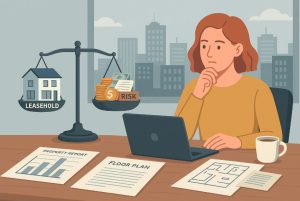
Not at all. In 2025, leasehold is still a sensible and strategic option for many buyers especially those looking for affordability, location, and convenience.
The key to success is understanding the lease, the managing structure, and any ongoing costs. A long lease (over 100 years), a fair service charge, and a responsible freeholder or management company can make leasehold a worthwhile investment.
Furthermore, reforms such as the abolition of ground rent on new leases and proposed simplification of lease extensions and enfranchisement continue to improve conditions for leaseholders.
Freehold vs Leasehold: Updated Comparison for 2025
| Aspect | Freehold | Leasehold |
| Ownership | Owns land and building | Owns property only for a fixed term |
| Duration | Permanent | Fixed term (99–999 years) |
| Ground Rent | Not applicable | Usually not charged on new leases post-2022 |
| Maintenance | Full responsibility | Often shared or managed by freeholder |
| Flexibility | Full freedom on alterations | May require permission |
| Resale Potential | Generally easier to sell | May be harder with short leases or high charges |
| Legal Control | Full control | Bound by lease terms and managing agents |
| Cost | Typically more expensive | Lower initial price and associated fees |
Should You Buy a Leasehold Property in 2025?
Buying a leasehold property is not inherently a poor decision but it is a more complex one. It requires due diligence, careful reading of the lease, and often, legal advice from a specialist leasehold solicitor.
Leasehold homes can offer excellent value for first-time buyers, downsizers, and city professionals. However, buyers must be fully informed of their rights and responsibilities before proceeding.
If you’re considering leasehold, make sure you:
- Understand all charges (ground rent, service charges, admin fees)
- Check the lease length and extension costs
- Know your rights as a leaseholder
- Consult a solicitor experienced in leasehold law
Frequently Asked Questions
What is the typical lease length in 2025?
Most modern leases start at 125 or 999 years. Anything under 80 years is considered short and may require an extension.
Can I extend my lease in 2025?
Yes. Leaseholders have the right to extend their lease by 90 years (for flats) under the Leasehold Reform legislation, but costs can be high if the lease is short.
Is ground rent still a concern in 2025?
Ground rent has been banned on most new leases since 2022, but older leases may still include it. Check your lease carefully to confirm.
Do leasehold properties sell easily?
Leaseholds with long leases and fair service charges generally sell well. Short leases or problematic freeholders can deter buyers.
Are leaseholders allowed to make changes to the property?
This depends on the lease terms. Some changes may require written consent, and others might be restricted entirely.
What happens when the lease runs out?
Ownership reverts to the freeholder unless the lease is extended. Most buyers extend before the lease becomes too short.
Can I buy the freehold of my leasehold property?
Yes, subject to certain qualifications. Flats may need to pursue collective enfranchisement with other leaseholders.

